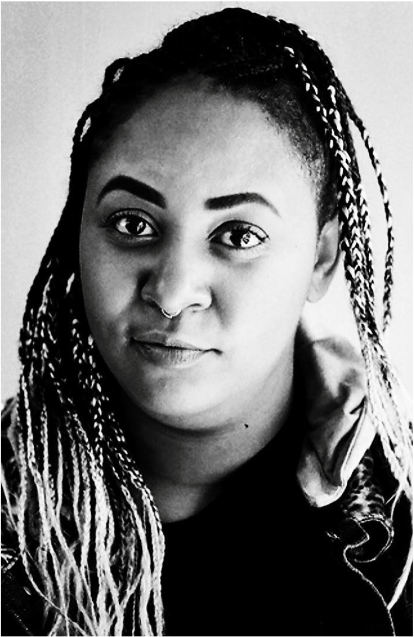Community-Centered Leadership
What if, instead of locating leadership in an individual, we locate it in the spaces between people, structures and ideas committed to racial and other forms of justice?
A long history of schooling would see the institution act upon the communities in which they are located, orchestrating action and policy from the top-down to maintain perceived order and cohesion (Rosen, 2019), power and control. However, a focus on community-centered leadership asks us to move beyond the constraints and structures of institutional leadership. As such, leadership with and for the community offers us opportunities to re-examine leadership on multiple levels. Learning from grassroots movements and community collectives that resist individual and hierarchical models of leadership provides us with the opportunities to reconceptualize how leadership might be structured, the process through which leadership operates, and the relationship between formal and informal leadership in education. This conceptualization of leadership centers collectivist and antiracist approaches (Shah & Grimaldos, 2023).
Community-centered leadership represents the interests and needs of the local community and leaders must utilize different strategies to advocate for change within education (Boehm et al., 2010; Ganz, 2010; Martiskainen, 2017). In reimagining leadership wherein community is truly centred, Shah & Grimaldos (2023) assert that educational leaders must learn to lead with the community. In considering the work and intent of community-based and grassroots organizations (parent groups, youth groups and other community collectives), we focus our conversation on those that speak alongside historically marginalized communities to which they may or may not belong. These communities have shared history and context (Martiskainen, 2017) and often share common experiences of oppression.
From an organizational perspective, grassroots movements gain their power not from appointed role and authority but instead from shared moral imperative, social capital, and collective movement (Borregard, 2019; Fabricant, 2010; Ganz, 2010; Ishimaru, 2019; Sampson, 2017). Solidarity that emerges from shared systemic oppression, shared concerns, and a shared vision create power within communities that contrasts the institutional power of individual leaders within education; the power of many over the power of one. Furthermore, within our Western, neo-liberal context, collective movements invite us to explore what a diverse critical democracy might enact, though not without tension or conflict (Luk, 2020; Rosen, 2019). This envisioning of leadership challenges deficit narratives that frames community activism as problematic and instead seeks to build on the strengths, capabilities, and contributions of historically oppressed communities (Ishimaru & Takahashi, 2017; Shah & Grimaldos, 2022). Reflecting on institutional power structures, community-centred leadership asks educational leaders to be learners alongside our students and families. When we move from I to we, collectivizing in ways that position us to redistribute power through our collective wisdom, we may begin to see leadership as relational (Shah & Grimaldos, 2023).
As we work towards locating leadership in the spaces between people, structures and ideas committed to racial and other forms of justice, we might blur the lines between knowledge producers and knowledge users, between leaders and those being led, allowing knowledge and power to change forms and change hands (Shah et al., forthcoming). Leaders that value leadership in-between might create fluid boundaries between people and ideas and build networks that flatten structures and demand transparency and openness. Johnson’s (2016) research on anti-racist Black leaders as boundary spanners and advocacy leaders in Toronto, Canada and London, England, found that leaders who navigate multiple personal and professional locations, used their positions, access and networks to create community and racial uplift, instead of simply focusing on career advancement. Ultimately, community-centered leadership is about building community trust that depends on transparency, integrity, and commitments to justice..
These ideas also have implications for where we source leadership. In her recent work, Ishimaru (2022) discusses the possibilities for authentic community engagement in decision making and shared leadership from an anti-colonial lens that moves beyond White, middle-class approaches to parent involvement to a critical acknowledgement of the voices of students and families that are typically silenced in our school communities. Community organizing with parents, community members, and youth is central to transforming conditions of schooling for historically oppressed populations, because it disrupts power asymmetries by building collective power in non-dominant communities (Mediratta, Shah, & McAlister, 2009; Warren & Mapp, 2011). When students, families and communities are valued for their leadership, and when educational leaders acknowledge and accept the limits to their power, we can imagine what democratizing power might look like in schooling (Rodela, & Bertrand, 2018). This shift in power suggests that families, students, and communities are acknowledged as experts on policies and decisions that affect them (Warren & Mapp, 2011; Welton & Freelon, 2018).
Through our conversations with community leaders, we hope to explore the ways in which we might collectively mobilize, build solidarity, and advocate for social justice. We consider the possibilities for new relationships that collectively speak against the injustices impacting historically oppressed populations and that open the imagination to future possibilities.
Reflection Questions:
- What might educators and administrators learn from studying the knowledge and leadership practices of parents, community groups, and students?
- What experiences and realities of activism, advocacy, and engagement by community groups are rendered as problematic by our educational institutions?
- How might we challenge our understandings of educational leadership and create spaces for shared leadership practices that centres the voices of the communities?
- Who do we need to be as leaders to lead centring communities?
- How might we apply this understanding to the work we do in communities, schools, and academies?
References
Boehm, A., Enoshm, G., & Michal, S. (2010). Expectations of Grassroots Community Leadership in Times of Normality and Crisis: Expectations of Grassroots Community Leadership. Journal of Contingencies and Crisis Management, 18(4), 184–194.
Borregard, A. (2019). Grassroots Leadership: Organizing for Ethical Change: Grassroots Leadership. New Directions for Community Colleges, 2019(185), 107–115.
Fabricant, M. B. (2010). Organizing for educational justice: The campaign for public school reform in the south Bronx. Univ of Minnesota Press.
Ganz, M. (2010). Leading Change: Leadership, Organization, and Social Movements. In N. Nohira & R. Khurana (Eds.), Handbook of Leadership Theory and Practice (pp. 509-550). Harvard Business School Press.
Ishimaru, A. M. (2022). Reimagining American Education: Possible Futures: Youth, families, and communities as educational leaders. Phi Delta Kappan, 103(6), 52-55.
Ishimaru, A. M. (2019). Just schools: Building equitable collaborations with families and communities (Multicultural Education). Teachers College Press.
Ishimaru, A., & Takahashi, S. (2017). Disrupting racialized institutional scripts: Toward parent-teacher transformative agency for educational justice. Peabody Journal of Education, 92(3), 343-362.
Johnson, L. (2016). Boundary spanners and advocacy leaders: Black educators and race equality work in Toronto and London: 1968-1995. Leadership and Policy in Schools, 15(1), 91-115
Luk, A. Only in a Collective: A Narrative Inquiry into Leadership in a Collective Organizational Structure. [Unpublished doctoral dissertation] Ontario Institute for Studies in Education, University of Toronto.
Martiskainen, M. (2017). The role of community leadership in the development of grassroots innovations. Environmental Innovation and Societal Transitions, 22, 78–89.
Mediratta, K., Shah, S., & McAlister, S. (2009). Community organizing for stronger schools: Strategies and successes. Harvard Education Press.
Rodela, K. & Bertrand, M. (2018) Rethinking educational leadership in the margins: Youth, parent, and community leadership for equity and social justice. Journal of Research on Leadership Education, 13(1), 3-9.
Rosen, S. (2019). “So Much of My Very Soul”: How Youth Organizers’ Identity Projects Pave Agentive Pathways for Civic Engagement. American Educational Research Journal, 56(3), 1033–1063.
Shah, V. & Grimaldos, D. (2022). Lies, Denials, and Cover-Ups: The Pervasiveness of Whiteness in School Districts Relations with Black and Racialized Parents. Urban Education, 0(0).
Shah, V. & Grimaldos, D. (2023). Rising Up: Collectivizing, Strategizing, and Forging Solidarities among Parents and Caregivers Leading for Racial Justice. Voices in Urban Education 51(1).
Sampson, C., (2017). So It “Became White Activists Fighting for Integration?” Community Organizations, Intersectional Identities, and Education Reform. The Urban Review, 49(1), 72–95.
Warren, M. R., & Mapp, K. L. (2011). A match on dry grass: Community organizing as a catalyst for school reform. Oxford University Press.
Welton, A. D., & Freelon, R. (2018). Community organizing as educational leadership: Lessons from Chicago on the politics of racial justice. Journal of Research on Leadership Education, 13(1), 79-104. https://doi.org/10.1177/1942775117744193
Panelists
Neethan Shan
Neethan Shan is the Executive Director of Urban Alliance on Race Relations (UARR). He is a former Toronto City Councillor and Toronto District School Board Trustee for Scarborough—Rouge River. From 2006-2010, he also served as a York Region District School Board Trustee.
Neethan Shan began his career as a Youth Outreach Worker in Malvern. Neethan went on to become a manager for youth programs in Malvern, where he developed and implemented over twenty programs in many different schools. He has served as a Math and Science teacher, a college professor, and is the former Executive Director of CanTYD and of the Council of Agencies Serving South Asians.
During his ten years as Executive Director of CASSA, Neethan advanced the health equity agenda for South Asian communities, undertook a campaign to make municipalities outside the GTA become more inclusive, spearheaded the campaign to establish anti-racism directorate at the provincial level, and brought over 100 organizations from across Ontario under a solidarity umbrella to advance social and economic justice for all South Asians and all other equity deserving communities.
Neethan’s extensive involvement in the social services sector also includes work with Parent Action on Drugs, Malvern Community Coalition, Community Use of Schools Council, and Scarborough Youth Task Force, just to name a few organizations.
Currently, Neethan is advocating for racial justice at all levels of government. He pushes for policy change at the systemic levels in education, employment, health and justice. He has led campaigns within diverse communities that fought back against severe cuts to education, healthcare and legal aid. He is currently leading an awareness and advocacy campaign to have all post COVID recovery and rebuilding initiatives to be centred on racial equity.
Neethan Shan has a distinguished human rights advocacy record, receiving many awards including the Race Relations Award from the Urban Alliance for Race Relations and the Vital People Award from the Toronto Community Foundation. As a Toronto City Councillor, Neethan was Toronto’s Youth Equity Champion and Newcomer Advocate.
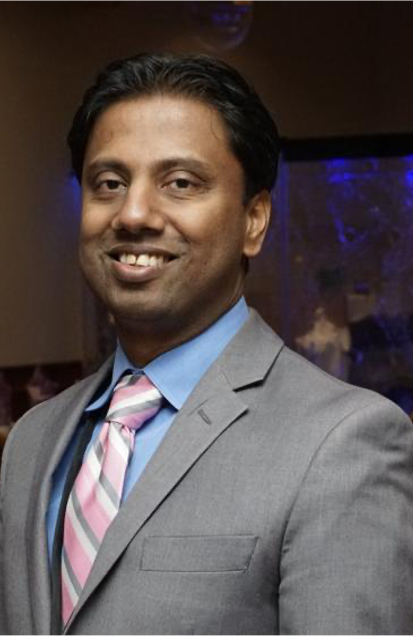
Charline Grant
Charline Grant is a trailblazer in the area of diversity, equity and inclusion, as well as in leading the charge for education reform. She is a Partner at Kedz Consulting which provides anti-racism, equity and inclusion training and consultation that inspires transformative change in individuals and across organizations. Charline is one of the founding members for Parents of Black Children and the provincial Education Systems Navigator, representing the needs of Black children and parents. Charline is also a wife and proud mother to 3 amazing children.
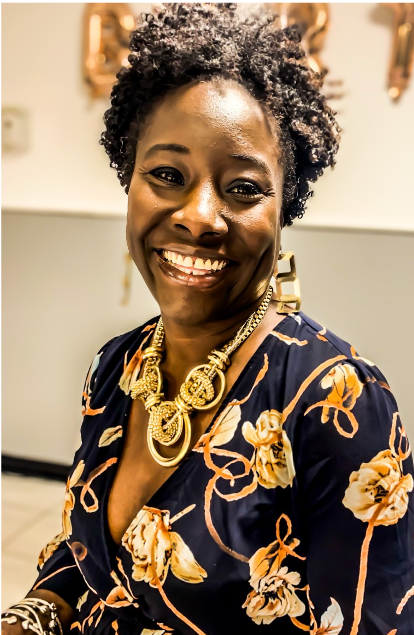
Diana Grimaldos
Creative thinker and connector with extensive experience in community engagement and relationship building. Working in the non-profit sector in a variety of roles, I have gained valuable leadership experience supporting historically marginalized communities navigating institutions, this afforded me the expertise and experience to use lived realities and real-world contexts to inform transformational solutions for systemic, equitable organizational change.
My practice is rooted in an equity design thinking approach, designing a number of adult training and curriculum for both community leaders and service providers to navigate complex structural systems.
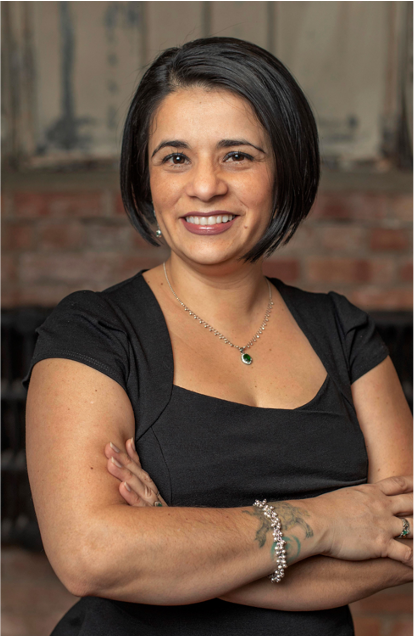
Sylvia Maracle
Sylvia Maracle (Skonaganleh:ra) is a 2Spirited Mohawk, Wolf Clan member from Tyendinaga Mohawk Territories. Maracle has worked with Indigenous Friendship Centres since 1975 as a volunteer and summer student, and then for 41 years as Executive Director. Maracle was President of the Board of Directors of Native Child and Family Services of Toronto; President of the Native Women’s Resource Centre of Toronto; and, a member of Toronto Anti-Racism Committee.
Maracle has been instrumental in designing, implementing and chairing Ontario strategies such as the Indigenous Healing and Wellness Strategy, the Indigenous Health Policy of Ontario, and the Strategic Framework to End Violence Against Indigenous Women, and was a founding Board member of Legal Aid Ontario. Maracle currently is Chair of Ontario Aboriginal Housing Services. Maracle’s federal involvement has included being the founding National Chair of Aboriginal Headstart Program, a member of the Assembly of First Nations Renewal Commission, and a member of the National Indigenous Courtwork Committee. She has also played leadership roles for the National Association of Friendship Centres and the Native Women’s Association of Canada. Recently, Maracle was a founding Co-Chairs(?) for Two Spirits in Motion, the national advocacy group to support 2SLGBTQ+ Indigenous community members. Maracle facilitated side events at the UN Status of Women sessions and participated in the North American Leadership Summits on Ending Violence Against Indigenous Women and Girls.
Maracle has received Doctor of Laws degrees from Guelph, York, Trent and Queen’s Universities. Maracle is an Officer of the Order of Canada, Queen’s Jubilee Medal and an Inspire Award for Public Service.
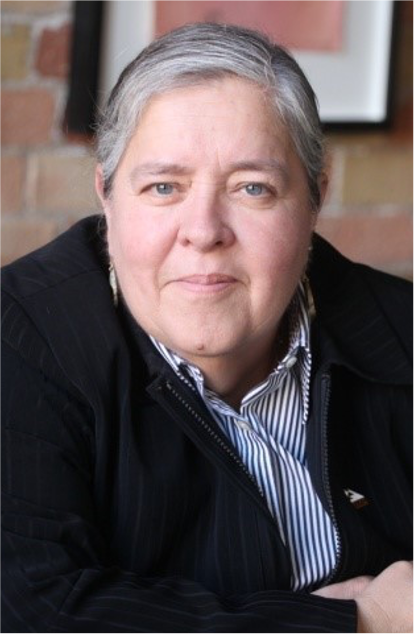
Ahona Mehdi
Ahona Mehdi (She/Her) is a community organizer based in Hamilton, Ontario and a first year student at the University of Ottawa. She is a member of Defund Hamilton Police Services (Defund HPS) and Hamilton Students for Justice (HS4J). Through these coalitions, she has worked to support unhoused community members during Hamilton’s growing housing crisis by calling for the re-allocation of police funding into free housing. With this, she has worked alongside students to advocate for accountability in education and police-free schools. She is also a former student trustee for the Hamilton-Wentworth District School Board (HWDSB), through which she exposed issues of racism, ableism and Islamophobia among the HWDSB board of trustees. She is passionate about youth-led, community-centred work around abolition. As an organizer, she works to create networks for Black, Indigenous, racialized and disabled youth to connect, build community, co-learn, heal and love.

LeRoi Newbold
LeRoi Newbold is a community educator, organizer and parent of 3 children and a village more. LeRoi recently completed his masters at York University in Black liberatory education and his principal qualification courses at Niagara. LeRoi has designed Afrocentric/Black focused curriculum and taught at the Africentric Alternative School for the past 10 years. For the past 5 years LeRoi has directed Freedom-School with Nauoda Robinson focusing on teaching self-love, histories of Black resistance and community organizing to Black students.
